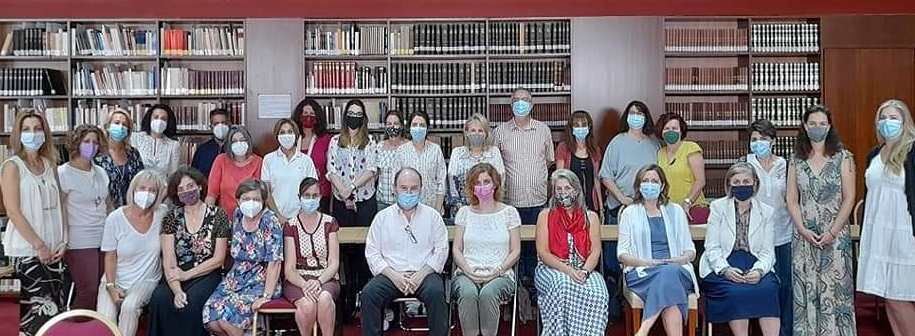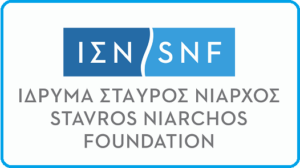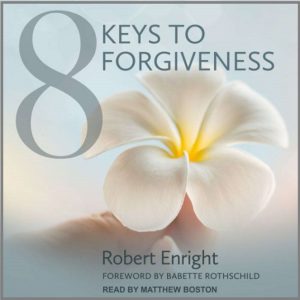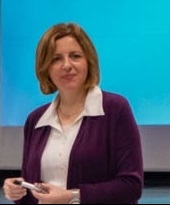Our Forgiveness Blog
The Good Old School Days
OK, everyone, it is time to reflect on those good old school days of yore, those care-free days when everyone thought we did not have a care in the world. Yet, sometimes we carry burdens from those days and we do so in the silence of our own hearts. When was the last time that you, as an adult, had a discussion about your days in elementary, middle, or high school? When was the last time you had such a discussion with an emphasis on the emotional wounds you received back then? I am guessing that such discussion-times have been quite rare.
I wonder how many of you reading this still have some unresolved issues from the good-old-days. It is in school, within the peer group, at recess, on the sports team that our current sense of self is shaped, at least to a degree. Sometimes we are influenced by those days to a greater extent than we realize.
So, it is time for a little quiz. Please think about your days in school and see if you can identify one person who was unjust to you, so unjust that when you think about the person now, it hurts. This person is a candidate for your forgiveness. I have an important question for you: How has this person inadvertently influenced your own view of yourself? How has this person’s actions made you feel less than who you really are? Do you see that it is time to change that?
My challenge to you today is to take steps to forgive the person for those behaviors long ago that have influenced you up to this very moment. It is time to take a better look at what happened, to forgive, and then to ask the question after you forgive: Who am I now as I admit to the injustice, admit to it negatively influencing how I have seen myself all these years, and who am I now as I stand in forgiveness?
Perhaps the good old days will seem a little brighter once you forgive. You will have lifted a silent burden.
Robert
Forgiveness Education in Greek Schools Now Includes How to Handle Trauma and Anger
More than 3,000 grade school students in Greece are learning how to reduce their anger, increase cooperation, gain resilience, and transform their traumas into personal character strengths through Forgiveness Education classes during this 2021-2022 school year.
“Trauma Transformation Through Forgiveness Education” is a social-emotional learning (SEL) program developed by Dr. Peli Galiti, Ph.D., M.Ed., research scholar at the University of Wisconsin – Madison. Dr. Galiti, a native of Athens, is also Director of the Greek Forgiveness Education Program (GFEP) started in 2014 by the Madison-based International Forgiveness Institute (IFI).
“This one-of-a-kind program is based on the educational research studies conducted by Dr. Robert Enright who pioneered the field of Forgiveness Education,” says Dr. Galiti. “His studies have demonstrated that Forgiveness Education classes help students reduce in anger and hostile attribution, increase in empathy, and actually result in improved grades.”
Dr. Enright is a UW-Madison educational psychology professor who co-founded the International Forgiveness Institute in 1994. He has developed comprehensive Forgiveness Education curricula for students in grades K-4 through 12th that are now being used in more than 30 countries around the world.
According to Dr. Galiti, the new program is actually a collaboration between the IFI, UW-Madison, and two Greek universities—the Aristotle University of Thessaloniki and the National and Kapodistrian University of Athens (where Dr. Galiti previously lectured). Funding is provided by the Athens-based Stavros Niarchos Foundation, one of the world’s leading private, international philanthropic organizations. The program also has the endorsement of the Greek Ministry of Education.
Dr. Galiti began implementation of the Trauma Transformation program last September by leading a series of Forgiveness Education workshops for 110 Greek teachers. Those teachers are delivering the forgiveness classes this semester at schools in four Greek cities–Athens, Larisa, Patra, and Thessaloniki.
That training focused on techniques and methods the teachers could use to help their students manage traumatic experiences and any personal or relational difficulties that might cause harm and pain. Thematic instructional units included:
- Forgiveness Education theory and principles.
- Why forgiveness is necessary and how it is applied in the school environment.
- Theories about trauma and its treatment.
- Transformation and wound healing through Forgiveness Education.
- Collaboration in the classroom and conflict resolution.
- The experience of Forgiveness Education in Greek schools: Best Practices and Case Studies.

These grade school teachers in Athens were among the 110 teachers who received Forgiveness Education training conducted by Dr. Peli Galiti as part of the collaborative effort between the University of Wisconsin-Madison and the University of Thessaloniki.
The collaborative training efforts for this Forgiveness Education program have received support and major funding through the Greek Diaspora Fellowship Program that is designed to help avert Greece’s brain drain and develop long-term, mutually beneficial collaborations between universities in Greece, the United States, Canada, South Africa and Australia. The Fellowship Program is managed by the Institute of International Education in collaboration with the Fulbright Foundation in Greece, and funded by the Stavros Niarchos Foundation.
In 2017, Dr. Galiti was one of 30 Greek- and Cypriot-born scholars representing 28 prominent United States and Canadian universities who traveled to Greece to conduct academic projects with their peers at Greek universities as part of the Greek Diaspora Fellowship Program. As part of her fellowship, Dr. Galiti hosted workshops about Restorative Justice and Forgiveness Education, along with conducting research about bullying prevention and class collaboration.
- Visit the Greek Forgiveness Education Program website.
- Watch a 4 min. 12 sec. video about the Greek program: Learning to Forgive.
- Read more about Dr. Galiti’s eductional work in Greece.
- Watch a video webinar on Greek Forgiveness Education featuring presentations by Dr. Galiti and Dr. Enright.
About the Stavros Niarchos Foundation:
The Stavros Niarchos Foundation (SNF) (www.SNF.org), is one of the world’s leading private, international philanthropic organizations, making grants in the areas of arts and culture, education, health and sports, and social welfare. Since 1996, SNF has committed more than $3.3 billion through 5,100 grants to nonprofit organizations in 135 countries around the world.
The Foundation funds organizations and projects that are expected to achieve a broad, lasting and positive impact for society at large, and exhibit  strong leadership and sound management. The Foundation also supports projects that facilitate the formation of public-private partnerships as an effective means for serving public welfare. In addition to its standard grants, the SNF has continued to respond to the urgent needs of Greek society, by providing relief against the severe effects of the socioeconomic crisis through three major grant initiatives of $378 million.
strong leadership and sound management. The Foundation also supports projects that facilitate the formation of public-private partnerships as an effective means for serving public welfare. In addition to its standard grants, the SNF has continued to respond to the urgent needs of Greek society, by providing relief against the severe effects of the socioeconomic crisis through three major grant initiatives of $378 million.
Forgiveness Is More than Seeing the Humanity in the One Who Offended
I recently heard a speech in which the speaker equated forgiving with seeing the humanity in the one who offended. The one who was victimized sent a letter to the offender stating that the offending person owes the victim nothing. The speaker said that the letter was sent to set the self free. While these aspects of forgiving (seeing the other as more than the offense and writing the letter for one’s own sake) are both laudable and part of forgiveness, they do not, in themselves, constitute what forgiving is in its essence.
Had the speaker said something such as the following to the audience, it would be reasonable because the speaker would be instructing the audience that this is not the sum total of forgiveness: “I have worked at seeing the offending person as much more than his actions against me. I sent a letter to him to set myself free. These are part of forgiveness, perhaps the best I can do for now, but there is much more to what forgiveness is than this.” Otherwise, the messenger is engaging in the logical fallacy of reductionism, or reducing what forgiveness is to less than what it actually is.
Such a clarification is important for this reason: Because forgiveness is a moral virtue, it is about goodness directed deliberately toward the other person for that offending person’s sake. A letter sent for one’s own benefit is quite different from sending it to aid the one who offended. Again, the motive of self-healing is good, but there is more. The benefits toward the self are consequences of forgiving; these benefits for the self are not what forgiveness is in its essence.
Forgiveness is a response of mercy toward the one who offends. It also includes the cultivation of compassion toward that person, the bearing of pain for the other, and the giving of a gift because that is what mercy does. Forgiveness, then, is centered not only on insight about the other person but also on a deliberate gift-giving toward that person. This does not mean that all who forgive reach this fuller level of forgiving, but it does mean that this is the goal.
When people are asked to speak to an audience, this implicitly sets up the expectation that the speaker has a certain wisdom about the topic so that the audience will get as clear an understanding of the topic as possible. When the speaker then engages, without realizing it, in the logical fallacy of reductionism, this does not advance deep knowledge of that topic.
The take-away message of this blog post is this: When you hear a scheduled talk by someone who is considered an authority on the subject of forgiveness, be very careful not to conclude that what the speaker is saying must be the truth and nothing but the truth because the person was asked to speak. Sometimes, there is reductionism or patently false information given on the complex topic of forgiveness. Let the listener beware.
Robert
Becoming Forgivingly Fit
Because forgiving others is a moral virtue, we cannot reduce the act of forgiveness to a psychological technique. For example, we cannot engage one time in “the empty chair technique” and have a deeply hurt forgiver sit in the chair of the one who acted unjustly and then gain full insight into that person’s wounds with a resultant overflowing compassion toward that person. To clarify, there is nothing wrong with this technique, but we cannot think of it as complete. As an analogy, if you will take out a gym membership to get into physical shape, your goal is not reached as you go on the treadmill one time or do 20 bicep curls only once. To become physically fit, you need repetition, for a long time.
It is the same with becoming forgivingly fit. Your task is not accomplished by engaging in one set of actions, in one psychological technique. Growing in any of the moral virtues takes time, perseverance, and a strong will to keep at it. As Aristotle reminds us, we need three things to grow in the moral virtues: practice, practice, practice.
We can even engage in our forgiveness practice when we do not have a particular person in mind to forgive today. Here is an example: As we forgive, we struggle to see the inherent worth in others. So, as we interact with people today, even those with whom we are getting along, we can say to ourselves, “This person probably has a history of being wounded in some way by others in the past. This person has built-in worth that cannot be taken away.” As you pass by strangers in a store or on the street, you can say the same about them. The key here is to train one’s mind to see the inherent worth in others so that you can then apply this learning toward those who hurt you, as you decide to forgive.
Here is another idea for growing in forgiveness fitness: Make a list of as many people as you can remember who have hurt you, from your childhood to now. List who the person is, what occurred that was unjust, and your degree of hurt on a 1-to-10 scale. Then order all of these people from the least hurtful (but still a challenge for you now) to the most hurtful. Start with the one person who hurt you the least and go through the forgiveness process with that person. When you think you have accomplished forgiving this one person, and it might take weeks, then go to the next person on the list. Continue until you reach the person who wounded you the most. You then may be ready to forgive this person because you have engaged in practice, practice, practice in forgiving and so your forgiveness fitness likely has increased.
Becoming forgivingly fit takes time, perseverance, and a strong will. As in becoming physically fit, you will notice a difference inside of you that includes well-being and even a sense of wholeness. What do you think: shall we hit the forgiveness gym now?
Robert
Forgiveness and Finding Meaning in Sacrifice
〈This is an excerpt from my book, 8 Keys to Forgiveness, W. W. Norton & Company, 2015.〉
When you sacrifice for others, you are doing a lot more than acting in service to them. They may be bleeding emotionally inside, and you then bleed inside to help them stop bleeding inside. For example, Brian’s mother, Yolanda, was overly-controlling toward him and his partner, Simone. Instead of distancing himself from Yolanda, he spent time gently giving her examples of her not letting him, in her own mind, develop independence in adulthood. This took energy, a checking of his anger so it did not spill out to her, and some suffering on his part to help her to understand.
Of course, we have to exercise temperance here too. Sacrifice does not mean that you do damage to yourself. The paradox is that as you sacrifice for others, you experience emotional healing.
Dr. Frankl, in his book, Man’s Search for Meaning, provides a remarkable case study of the kind of meaning one can find in sacrificing for others. His example is not in the context of forgiveness. I relate it to you so that you can see how sacrifice works and becomes an aid to the one who is doing the sacrificing. An elderly physician came to see Dr. Frankl because of the loss of his wife 2 years earlier. Dr. Frankl saw that he was psychologically depressed. His question to the physician was this: “What would have happened to your wife if you were the one to go first?” With that question a bigger picture opened for the physician. Had he gone first, then it would have been his beloved wife who would be visiting Dr. Frankl for her depression. By her going first, she was spared years of grief. The physician then understood that he could willingly take on the suffering on behalf of his wife……….
Can you see how a sacrificial attitude, within reason, could aid you in forgiving and in overcoming resentment? I say within reason because you do not want to overdo this either. If a person refuses to hear what you have to say, or refuses to accept your sacrificial gestures and begins to use you, then it is time to reexamine the approach. None of these approaches is foolproof. If you see  benefit in the sacrificial attitude and related behaviors, then what is your particular plan? What will you do that is hard for you to do in service to the other? How long will you give this undertaking? Do you see even a glimmer of evidence……that the other is open to even small change? Be sure to monitor your coping level during this exercise so that the sacrifice does not lead to an even greater resentment. If that begins to happen over a period of time, then it is time to reevaluate this particular approach in your case. If, on the other hand, it seems to be working, then stay at it as long as you can and as long as the other is willing to work with you in changing behaviors.
benefit in the sacrificial attitude and related behaviors, then what is your particular plan? What will you do that is hard for you to do in service to the other? How long will you give this undertaking? Do you see even a glimmer of evidence……that the other is open to even small change? Be sure to monitor your coping level during this exercise so that the sacrifice does not lead to an even greater resentment. If that begins to happen over a period of time, then it is time to reevaluate this particular approach in your case. If, on the other hand, it seems to be working, then stay at it as long as you can and as long as the other is willing to work with you in changing behaviors.
Reflect on the possibility that without your forgiveness, that person may never learn to live well. You may be playing a part in helping him or her grow deeply as a person. How might that be? He or she is being given a chance to see what genuine love is and to see it in action. Your sacrificial approach may even be playing a part in the very survival of this person. Of course, you do not want to go so far with this sacrifice that you do damage to yourself. Instead, the point here is that as you give of yourself, within reason, this giving might prove to be emotionally healing for you. When you are ready, write down your answer to the question of how you may be aiding the other’s healing.
Dr. Frankl then gives the reader an insight that is worth remembering: Sacrifice changes as soon as it is linked to a sound meaning that underlies it. The physician now had a meaning for going on, and his willing acceptance of outliving his wife was a sign that he loved her and wanted her safe.
Robert




